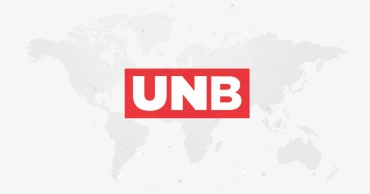Chattogram Hill Tracts Inclusive and Resilient Urban Water Supply and Sanitation Project
ADB provides $90 million for clean water, sanitation services in the Hill Tracts
The Asian Development Bank (ADB) and the Government of Bangladesh today (November 28, 2023) signed a $90 million loan agreement to develop infrastructure and systems that will provide clean drinking water and sanitation services in Bandarban, Lama, and Rangamati towns in the Chattogram Hill Tracts (CHT) region.
Md. Shahriar Kader Siddiky, Secretary, Economic Relations Division (ERD), and Edimon Ginting, Country Director, ADB, signed the loan agreement on behalf of Bangladesh and ADB, respectively, at a ceremony at ERD in Dhaka.
“We are pleased to support the government in pursuing inclusive and climate-resilient development by providing clean drinking water and sanitation services and improving solid waste management in the lagging Chattogram Hill Tracts (CHT) region,” said ADB Country Director Ginting.
Read more: Latest ADB report predicts a better year for Bangladesh in FY2024
“The improved services will reduce the risks of water-borne diseases, enhance health and economic opportunities, and benefit women who spend considerable productive time daily collecting water and managing wastes,” he said.
The Chattogram Hill Tracts Inclusive and Resilient Urban Water Supply and Sanitation Project will develop water treatment plants with a total capacity of 44 million liters per day in Bandarban, Lama, and Rangamati towns, as well as 24 km of transmission line and 340 km of new water distribution network to connect to households.
In Bandarban and Lama, the project will also modernize sanitation and solid waste management systems through rehabilitated public toilets and the provision of vehicles to safely de-sludge fecal sludge and collect solid waste integrated with a geographic information system, and equip household waste bins with radio frequency identification (RFID) tags to track waste collection.
The project will also develop two integrated waste management facilities to treat and manage fecal sludge and solid waste, said the regional development bank.
To maximize impact and sustainability, a community awareness and behavior change campaign on water, sanitation, hygiene, climate resilience, and solid waste management will be conducted.
The campaign will target 100,000 people, with at least 60 percent participation from women and the vulnerable population.
Around 300 staff (at least 90 percent of the eligible women staff) of the Department of Public Health Engineering, hill district councils, and municipalities will be trained on climate-resilient, inclusive, and sustainable water supply, sanitation, and solid waste management service delivery.
The project will also enhance the readiness for implementation of future investments in water supply and sanitation for 31 towns by preparing feasibility studies, detailed designs, and bidding documents following approaches that promote disaster and climate resilience as well as gender equity and social inclusion.
Read more: In another first, PM Hasina opens Ctg-Cox's Bazar railway line
2 years ago

